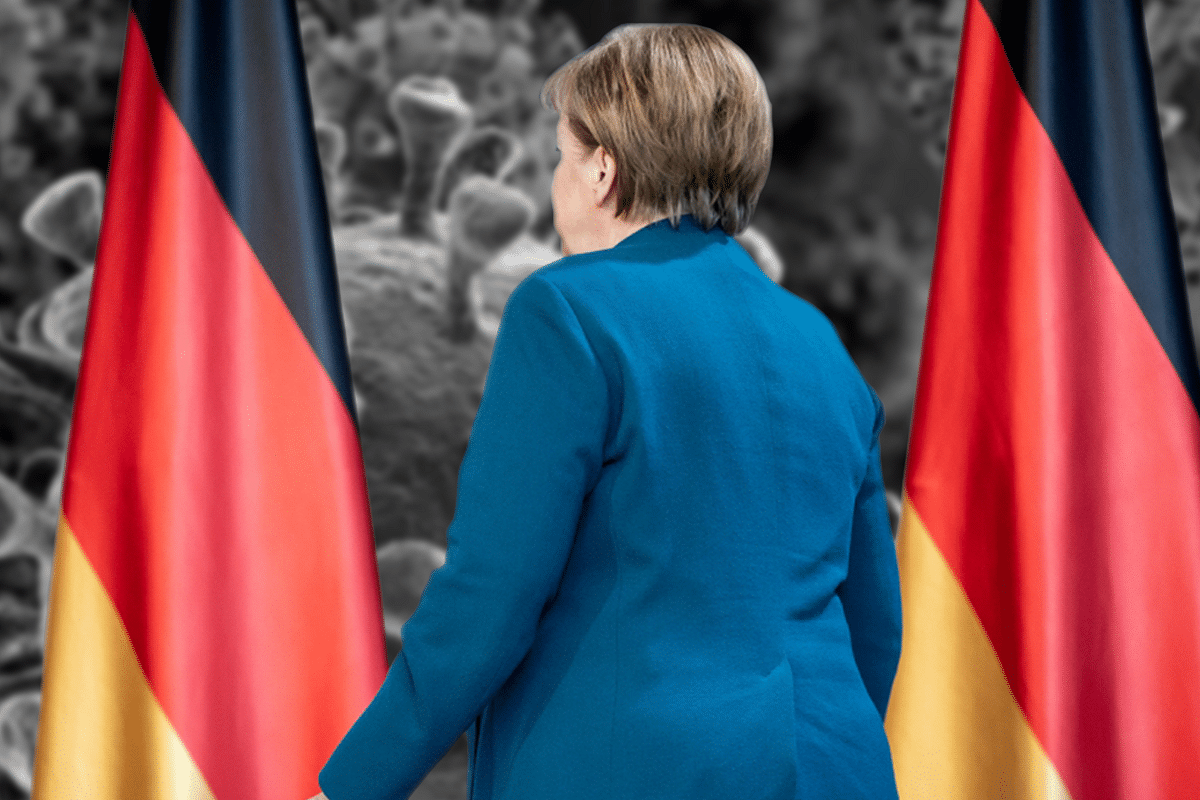Economy
Coronavirus Crisis: Germany Is Banking On A $370-Billion Borrowing Binge To Escape A Recession
- As per the finance ministry of the country, the economy will shrink by at least 5 per cent in 2020.
- Compared with the current forecast of 1.1 per cent, this would result in the worst contraction since the 2008 financial crisis.

Chancellor of Germany Angela Merkel
Germany, which has registered the most number of Covid-19 cases after China, Italy, the United States, and Spain (and possibly Iran) is staring at a recession.
As per the finance ministry of the country, the economy will shrink by at least 5 per cent in 2020. Compared with the current forecast of 1.1 per cent, this would result in the worst contraction since the 2008 financial crisis.
To be presented later this week, a supplementary budget of $167 billion (156 billion-euro) was first forecast. The country has been one of the first victims of the economic consequences of the Covid-19 outbreak with supply chains being disrupted.
Germany’s Schaeffler Group, with around 87,000 employees worldwide, and a major supplier to carmakers, is already planning to cut production capacity across Europe and avoid layoffs. The measures include a reduction in working hours and decreasing production on certain days. Similar concerns have also been voiced by the Bosch CEO.
However, German Chancellor Angela Merkel is still sceptical about a complete shutdown. In an address to the nation last week, describing her own experiences in communist East Germany, Merkel stated that movement and travel was a hard-won right, and restrictions were justified only in absolute necessity.
With the prowess of German manufacturers being no secret, the government has requested domestic car manufacturers like Volkswagen AG and Daimler AG to shift their focus on producing masks and ventilators. By doing this, the government is aiming to address faultlines in its medical capacity and healthcare infrastructure.
Volkswagen and Daimler have also agreed to donate more than 300,000 protective masks from their existing resources to health organisations.
However, the concerns are not only on the manufacturing side but also on saving the manufacturers themselves.
As per a report in Bloomberg, apart from the 150 billion euros being borrowed to deal with the outbreak, another rescue fund amounting to 200 billion euros could be set up in order to buy stakes in critical companies and fund additional corporate loans.
This would take the total borrowing to almost $370 billion. The funding size will be based on company requirements.
Apart from the debt financing, another 100 billion euros in loans through state-run development bank KfW has been promised, and another 400 billion euros in bank guarantees has been pledged.
Being the largest in the European Union, the dent in Germany’s economy would mirror that across Europe. Already, with Italy, France, Spain, and the Netherlands plunged deep into the crisis, fiscal actions by the German government could set the ball rolling for other member states of the European Union.
Currently, Merkel is under self-quarantine after she came in contact with a doctor who later tested positive for Covid-19. The budget will be taken up later this week.
Support Swarajya's 50 Ground Reports Project & Sponsor A Story
Every general election Swarajya does a 50 ground reports project.
Aimed only at serious readers and those who appreciate the nuances of political undercurrents, the project provides a sense of India's electoral landscape. As you know, these reports are produced after considerable investment of travel, time and effort on the ground.
This time too we've kicked off the project in style and have covered over 30 constituencies already. If you're someone who appreciates such work and have enjoyed our coverage please consider sponsoring a ground report for just Rs 2999 to Rs 19,999 - it goes a long way in helping us produce more quality reportage.
You can also back this project by becoming a subscriber for as little as Rs 999 - so do click on this links and choose a plan that suits you and back us.
Click below to contribute.
Latest